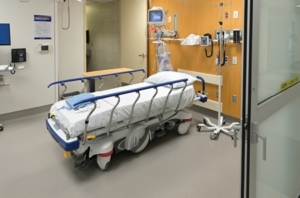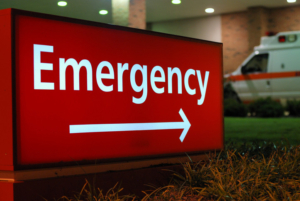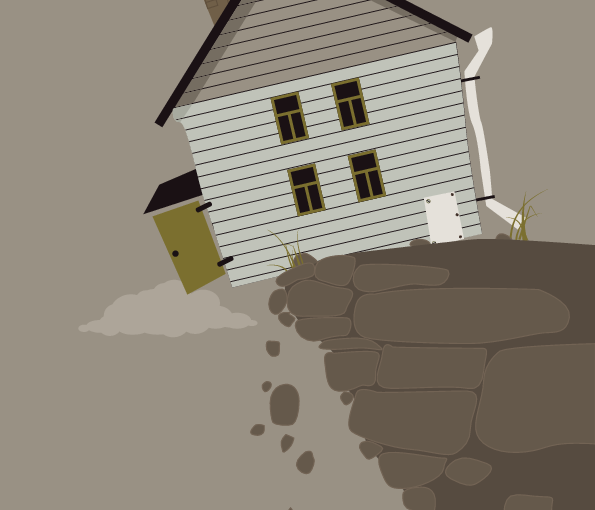In life, unexpected events have a way of challenging our resilience. One such experience occurred recently when my friend found herself in the throes of a sickle cell crisis, and we had to rush her to the Emergency Room (ER). While this was not my first time visiting an ER, this visit was a rather unpleasant experience. We rushed quickly to the ER in a bid to get her urgent medical attention; little did we know that our journey to get treatment would be marred by indifference, delays, and a startling lack of empathy. What should have been a straightforward process turned into a night of frustration, indifference, and an agonizing wait.
The Arrival:
As we rushed to the ER, the gravity of the situation was evident in the pain etched all over my friend’s face and all over as she kept groaning and her legs gave out from underneath her. A blind person would have been aware of her groaning pain, but not the ER receptionist, who was seemingly more engrossed in casual conversations with security personnel than attending to patients. Upon arrival, she barely spared us a glance and nonchalantly redirected us to sit in the waiting area.
Hours of Waiting:
Time seemed to stand still as we languished in the waiting area, and hours felt like an eternity as my friends’ pain intensified. Several visits to the receptionist were met with lackadaisical responses and a recommendation to call an ambulance if we desired immediate treatment. The agony of the patients in the waiting room appeared oblivious to the waiting area staff, and patients were left unattended with no timeline for when a doctor or bed would be available for treatment.

Triage Troubles:
Ninety minutes after our arrival, we finally got to see a triage nurse. My friend was unable to walk unassisted, and we had to support her into the triage room. It was therefore surprising when the triage nurse, who was seemingly detached from the urgency of the situation, insisted on checking my friend’s height and weight before addressing her immediate pain crisis. The nurse appeared to be interested in whether my friend had suicidal thoughts versus addressing her actual pain. The only response my friend could muster was the location of the excruciating pain along her arm. Post-evaluation, we were informed that there were no available beds and subsequently redirected to the waiting area. Our hopes for respite were dashed as bureaucratic procedures took precedence over delivering swift and effective care. Despite our pleas, the urgency of the situation seemed lost on the medical staff, perpetuating a sense of helplessness in the ER. The disconnect between the reality of the crisis and the protocol-driven approach was disheartening.
The Quest for a Bed:
After enduring the seemingly endless wait, we were finally informed that there were no available beds. The realization that my friend’s pain would be prolonged due to a lack of resources after hours of agony was a devastating blow. It left us questioning the efficiency of the healthcare system and the prioritization of resources. How could a person in dire need be left to suffer due to a lack of basic accommodations? It was a stark reminder of the strain on our healthcare system and the toll it takes on those seeking immediate attention.
The Human Element:
What stood out most starkly from this nightmarish experience was the absence of empathy (this is not to say that we did not encounter 1-2 empathetic individuals, but for the most part, we were alone). Amid pain and vulnerability, we expected a modicum of compassion from healthcare professionals. Instead, we encountered a system that seemed to prioritize bureaucracy over humanity.

In conclusion, our night in the emergency room was a distressing experience, highlighting the shortcomings within our healthcare system. The indifference of the receptionist, the delays in response, and the bureaucratic hurdles in triage were all contributing factors to an already challenging situation. While the ER staff may be grappling with overwhelming caseloads, it is crucial to remember that empathy, urgency, and effective communication can make all the difference in alleviating the suffering of those seeking help in their most vulnerable moments. This experience serves as a poignant reminder of the need for compassion and efficiency within our healthcare system to ensure that every patient receives the timely and attentive care they deserve. Continuous improvement in healthcare processes is crucial to ensuring that the human element is never overshadowed by bureaucracy. In the face of adversity, compassion and efficiency must go hand in hand, providing solace to those who seek help in their darkest moments.
Note: Unfortunately, we experienced a similar approach, as we rushed my friend back to the ER the next day.
Featured Image Sources: Harvard Health Publishing and Penn Medicine



